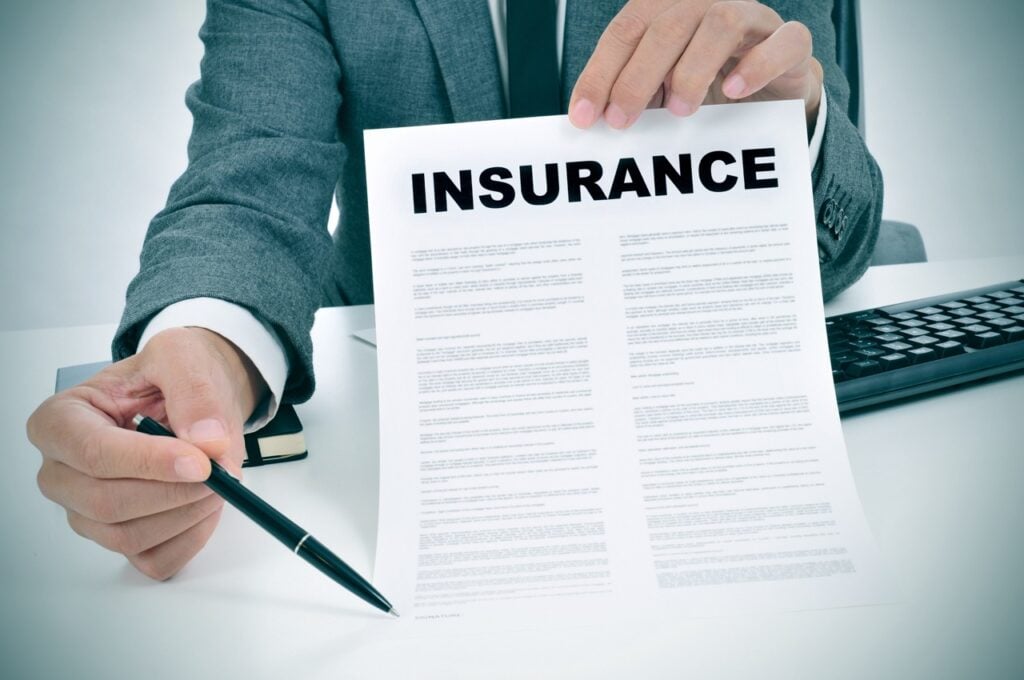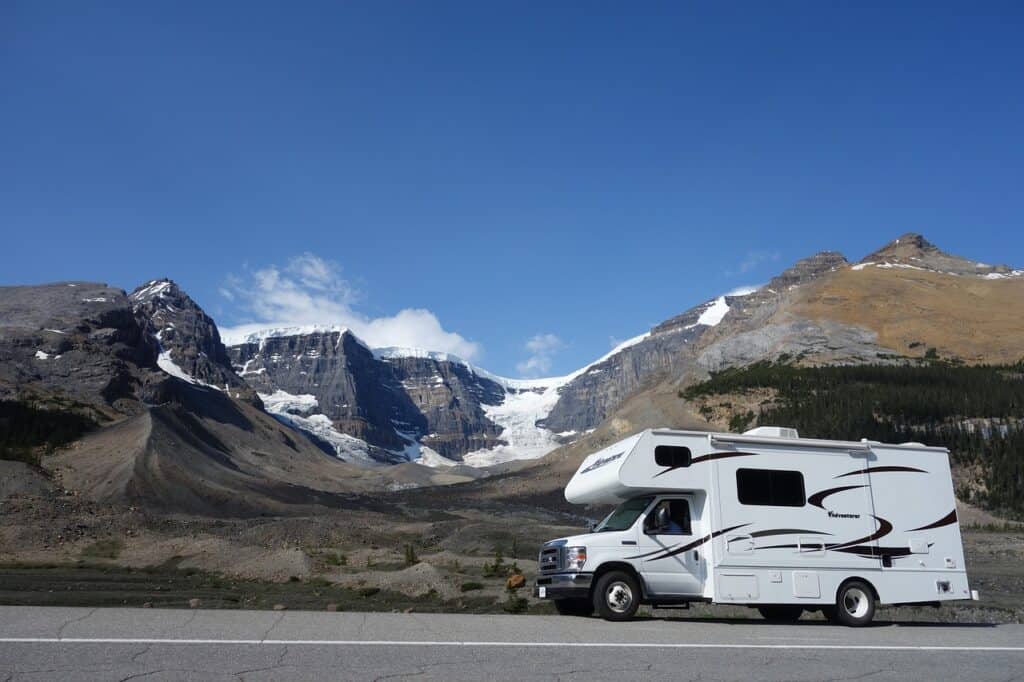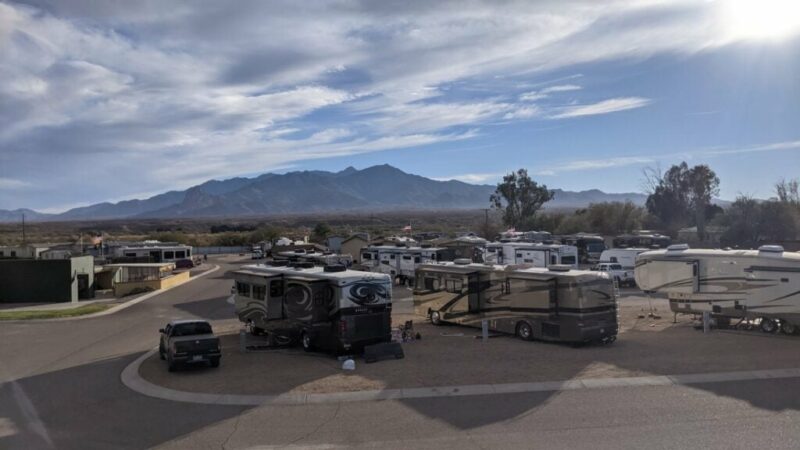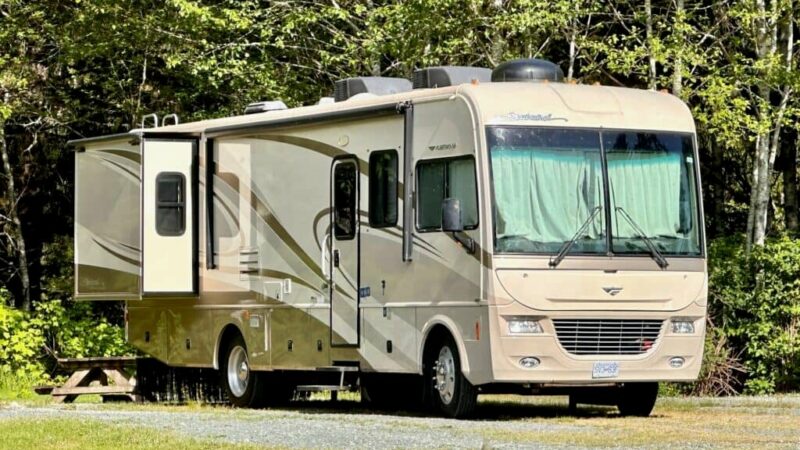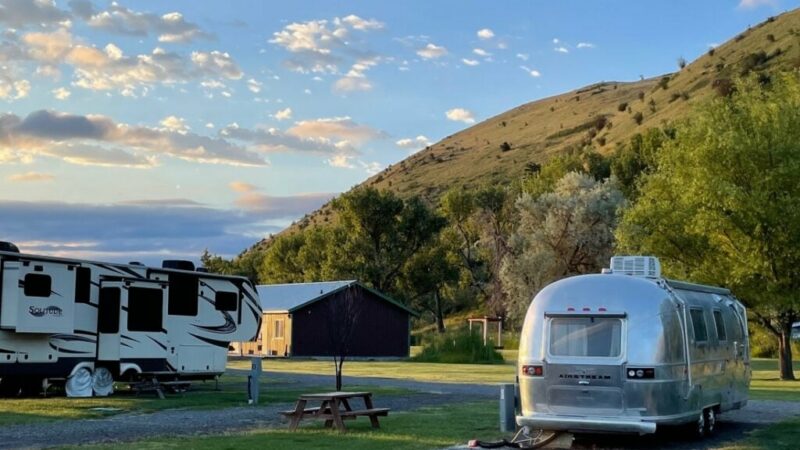How Much is Motorhome Insurance?
Motorhome insurance may not be the most exciting topic out there. But it is something every motorhome owner has to think about before hitting the road in their home-on-wheels. There are many factors to consider when deciding which insurance policy is right for you and your rig. Narrowing down your options can get pretty overwhelming.
If you’ve been shopping for RV insurance for your motorhome, you’ve come to the right place! In this article, we will discuss all the ins and outs of motorhome insurance so you can choose your insurance policy with complete confidence.
You Must Have Liability Insurance
Whether you’re driving a Class A, B, or C motorhome, you must have insurance coverage to legally drive on a public thoroughfare in most states. The bare minimum of insurance coverage is liability insurance, also known as Personal Injury Protection (PIP). This insurance covers the injuries or losses of other people whom you may harm in a motor vehicle accident.
While liability insurance is enough to allow you to drive your RV legally, it doesn’t cover much, meaning you may want to pay for a bit more than just liability insurance.
Better Yet, Get More Than One Type of Insurance
As you’ve probably already guessed, liability insurance is not the only type of insurance you can purchase for your motorhome. Other types of insurance that you could have for your motorized RV include collision, comprehensive, replacement, medical, and an umbrella policy. Which types you choose to buy will depend on the age and value of your RV, along with your personal tolerance for financial risk.
Different Types of Motorhome Coverage
As mentioned above, liability insurance covers the losses of other people. Meanwhile, collision, comprehensive, full replacement, and medical insurance cover your own losses.
Many insurance companies wrap some of these components together in their policies, so you won’t actually need separate policies for all these coverages. However, you should know about the unique categories so you can determine if any specific policy has what you’ll need for your protection.
Collision Coverage
In my opinion, collision coverage is as much a must-have as liability insurance. It covers your motorhome when you’re involved in an accident that is your fault.
Comprehensive Coverage
Damage caused by vandalism, theft, falling objects, fire, and natural disasters will be covered by comprehensive insurance.
Roadside Assistance
Roadside assistance will cover towing, lockouts, and tire replacement. This is crucial if you find yourself stuck on the side of the road.
Full Replacement Cost Coverage
This protects you from rapid RV depreciation by ensuring you receive a big enough check to completely replace your RV if it is totaled.
Personal Property and Belongings Coverage
Personal belongings coverage covers the items you carry in your RV. Just make sure you know how much your stuff is worth and keep an itemized list of what you have in your rig.
Adjacent Structures Coverage
Those who have a permanent or annual campsite with a shed or other structure will want adjacent structures coverage to insure these buildings.
Medical Payment Coverage
We all know how medical bills can add up. Medical payment coverage will cover all medical bills that are a result of the accident, and it can be a lifesaver.
Uninsured Motorist Coverage
A hit-and-run accident can cause some serious damage. Without uninsured motorist coverage, you will be totally responsible for paying for those damages.
Emergency Expense Coverage
Emergency expense coverage can cover different things. On some policies it might cover a hotel room if your RV is in the shop while you’re out on a trip. It could also pay for travel expenses should you have to return home without the RV.
Average Motorhome Insurance Costs
According to Classic Vans, the average motorhome insurance costs between:
- $1,000 to $4000 for a class A motorhome
- $800 to $3000 for a class C motorhome
- $500 to $1000 for a class B motorhome
Of course, your cost will vary wildly depending on several factors. These include:
- Driving history
- Age of driver/s
- Value of the RV
- Coverage purchased/deductibles
- Area of the country
- Intended usage
Want a better idea of what your motorhome insurance is going to cost? Get a free quote from RV Insurance now!
Ways to Lower the Premiums
When you’re shopping for a motorhome policy, you can lower the monthly or annual cost by carrying a higher deductible and limiting the types of extra coverages you wrap into the primary policy. For example, if you store your RV indoors when it’s not in use, it is unlikely to be stolen, vandalized, or damaged except in an accident. Because of this, you may choose not to have comprehensive insurance coverage.
You could also save by foregoing medical coverage and/or roadside assistance if you don’t believe you will use them.
Evaluate the Value of Separate Pieces of Your Policy
Yes, you can save by leaving certain coverages off of your motorhome insurance policy. However, it’s important to know that these specific coverages can be relatively inexpensive. They might be worthwhile when you consider how much unforeseen damages can cost.
As an example, comprehensive insurance as a part of a broader policy might cost as much as $600. Excluding it could reduce your premium by $600 annually. That said, if a large limb crashed down on your RV slide-out and caused damage as a result, your out-of-pocket costs would be much higher than $600.
Remember that comprehensive covers theft, vandalism, or any damage other than damage caused by a collision, and carefully weigh the risk vs reward of having this coverage. Do the same for all of the individual pieces of your policy.
Umbrella Policy Explained
The final type of motorhome insurance that you might consider purchasing is an umbrella policy. An umbrella policy is just an extension of your liability coverage. You would need to purchase an umbrella policy separately. It raises the amount of coverage you have available to pay for the injuries or losses suffered by others as a result of your actions.
A large motorhome that weighs 26,000 pounds or more can cause a lot of damage if it’s involved in a collision. The maximum loss limit in your main insurance policy just might not be high enough to cover all the injuries which could result, and that could trigger a lawsuit that names you personally as the defendant.
An umbrella policy will cost a few hundred dollars a year for one or two million dollars of extra liability coverage, but it could keep you out of a much more costly lawsuit.
Motorhome and Travel Trailer Insurance are Different
Above, I’ve included all the information you need to start shopping for Class A, B, and C motorhome insurance. That said, insurance for a travel trailer, fifth wheel, or a truck camper will differ quite a lot from motorhome insurance.
For instance, it’s good to know that towed RVs are covered by the liability insurance applicable to the towing vehicles while being towed. That said, comprehensive and collision coverage would need to be purchased separately for a towed vehicle. This is a different can of worms that is opened and explored in this guide to RV towing insurance.
Peace of Mind is Worth the Expense
As you can see, there is a lot to consider when shopping for motorhome insurance. Yes, it is a bit of work to find the right policy and getting good coverage will cost you a bit of money. But the peace of mind that comes from being well covered is absolutely worth the expense.
The post How Much is Motorhome Insurance? appeared first on RV LIFE.
